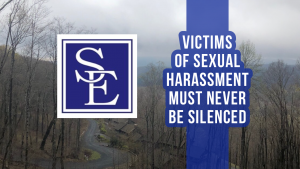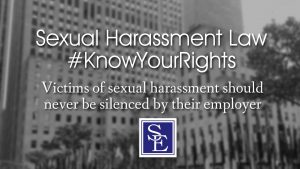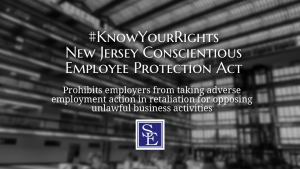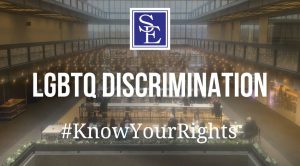The United States Equal Employment Commission (“EEOC”) has announced that it has settled a discrimination lawsuit in the amount of $321,000 against the United Airlines involving issues of cyber sexual harassment. The Flight Attendant alleged in her pleadings that United Airlines was negligent in allowing ongoing sexual harassment and cyber bullying of a pilot after she broke up with him in 2006 and therefore was responsible for creating at hostile work environment.

In the filed Complaint, the Flight Attendant alleges that she was engaged in a consensual intimate relationship with a United Airlines pilot from 2002 through 2006. During the consensual relationship, the Flight Attendant permitted the pilot to take photos and videos of her in provocative poses. The Flight Attendant alleges that the pilot also took at least one photograph and/or video with her knowledge or permission. In or about 2006, one of the Flight Attendant’s co-workers informed her that he had seen nude photos of her on an internet website for “swingers.” The co-worker told the Flight Attendant that he was led to believe that he had been “chatting” with her on the internet and that he had believed that she had personally emailed him additional photos after they had been communicating directly. Because of the conversation with the co-worker, the Flight Attendant came to believe that the pilot was the person responsible for posting and circulating the nude images of her on the internet. The Flight Attendant ended the relationship with the pilot after confronting the pilot about him posting the photos and videos without her permission or authorization.
The lawsuit alleged that the pilot continued to regularly post the sexually explicit photos and videos over the next decade, from 2006-2016. The Flight Attendant came to learn that the images and videos were viewed by at least two of her United Airlines co-workers and tens of thousands of other United Airlines personnel and coworkers. Despite her repeated complaints and obtaining an injunction, the pilot continued posting the videos and pictures on the internet. The pilot repeatedly referred to the Flight Attendant by name and her occupation and home airport, which she alleged he did intentionally to affect the terms and conditions of her employment.
 New Jersey Employment Lawyers Blog
New Jersey Employment Lawyers Blog












